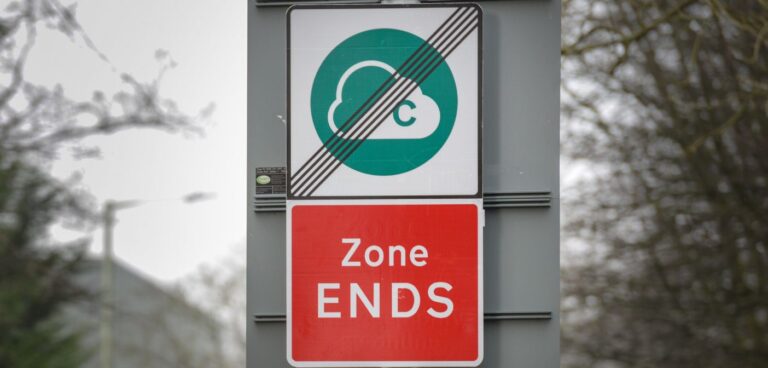Greater Manchester has published its case for a new, investment-led Clean Air Plan with no charging clean air zone (CAZ), to address the region’s roadside nitrogen dioxide (NO2) air pollution.
It was submitted to government on 29 June, to meet a 01 July deadline, once it had been considered by the Greater Manchester Air Quality Administration Committee (GM AQAC).
Unlike the previous charging CAZ scheme defined by government guidance, the proposed Greater Manchester Clean Air Plan seeks to address the cost-of-living crisis – through avoiding the use of charging – and will consider the impacts of the pandemic, particularly on Manchester city centre, where Greater Manchester needs to support ongoing recovery due to changes in economic activity and the impact of wider global economic instability on supply chains.
The approach includes analysis that outlines how an investment-led approach could see financial support targeted toward upgrading vehicles that frequently travel through locations where modelling shows exceedances of legal NO2 limits might otherwise continue.
It also states a commitment to review local policy changes, such as goods vehicle access controls, alongside regulatory measures such as hackney carriage and private hire vehicle licensing standards to accelerate fleet upgrades.
Finally, it puts forward a proposal to work with government to agree the targeted use of ANPR cameras to support identification of vehicles that could be upgraded, as well as for potential law enforcement activity related to the detection of crime.
The submission also addresses concerns that the price of new and used commercial vehicles is rising, making upgrade less affordable, with anecdotal evidence that the trade-in value of Euro 5 and older hackney cabs is falling, as more cities bring in tighter licensing standards and/or CAZs.
Andy Burnham, Mayor of Greater Manchester, said: “Our city is still recovering from the pandemic and we don’t want the government to level-down our city-centre with their proposals to charge businesses from across Greater Manchester who have to travel through or work within the proposed charging area.
“Even a small charging CAZ would result in a considerable financial burden for the many businesses moving products and people through Manchester city centre, providing a significant setback in economic recovery from the impact of the pandemic, and during a cost-of-living crisis.
“The government wants us to charge Greater Manchester businesses at a time when they can least afford it.”
Following today’s GM AQAC meeting, the next meeting will be asked to confirm the submission as final and notify the UK Secretary of State for the Environment, subject to any comments from Greater Manchester local authorities which will also consider the report in July, according to their local governance arrangements.
The GM AQAC will be asked to agree that the next stage of the new plan will be developed through engagement with business and the community.
In support of the Clean Air Plan, Greater Manchester will also ask for a commitment from government to develop an appropriate regulatory approach that that will legally require all private hire journeys booked in Greater Manchester to be undertaken by a driver and vehicle that are both licensed by one of the 10 Greater Manchester local authorities.
Out-of-area operation currently allows drivers to evade local licensing standards. The proposed regulation change would reportedly give local authorities stronger regulatory tools to improve the emission standards of all private hire fleets operating in Greater Manchester.





